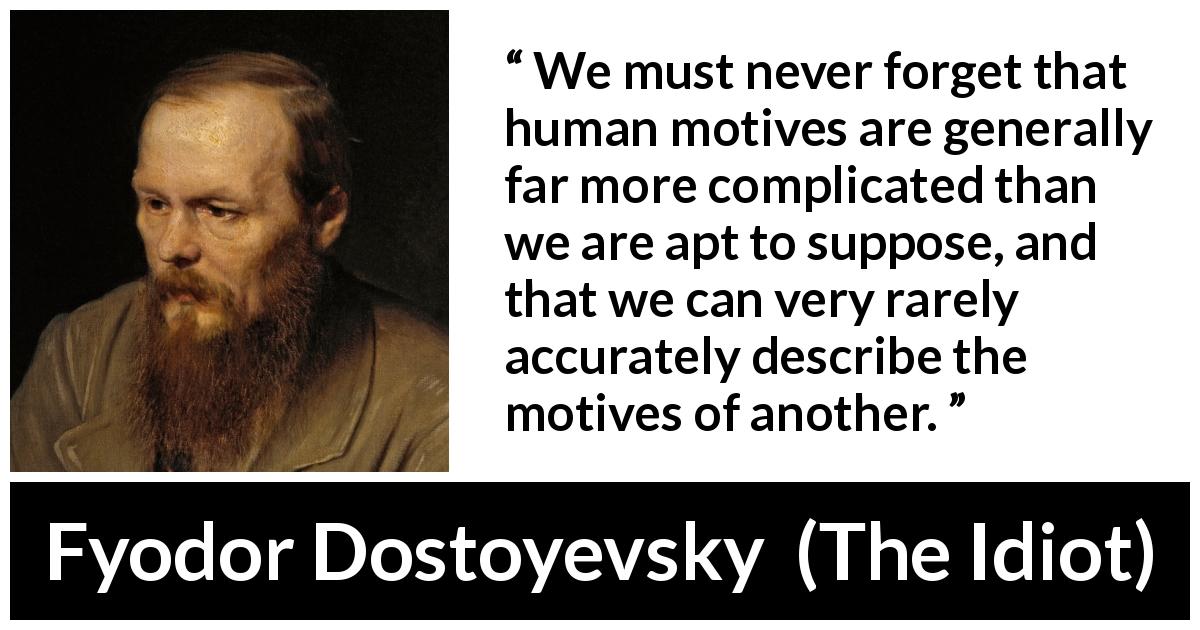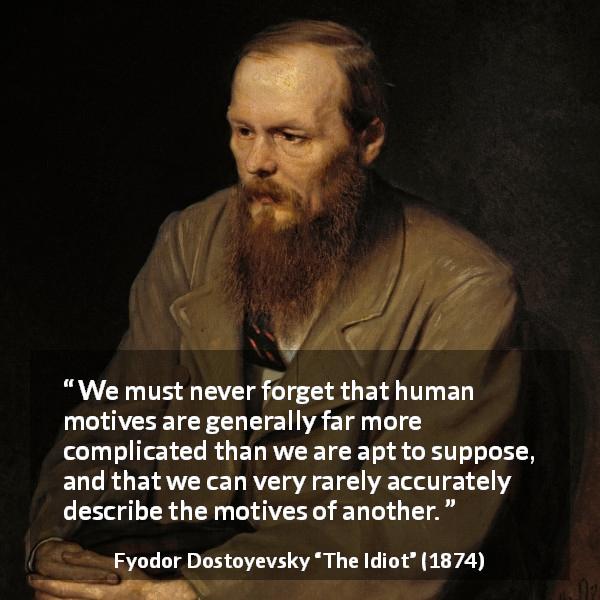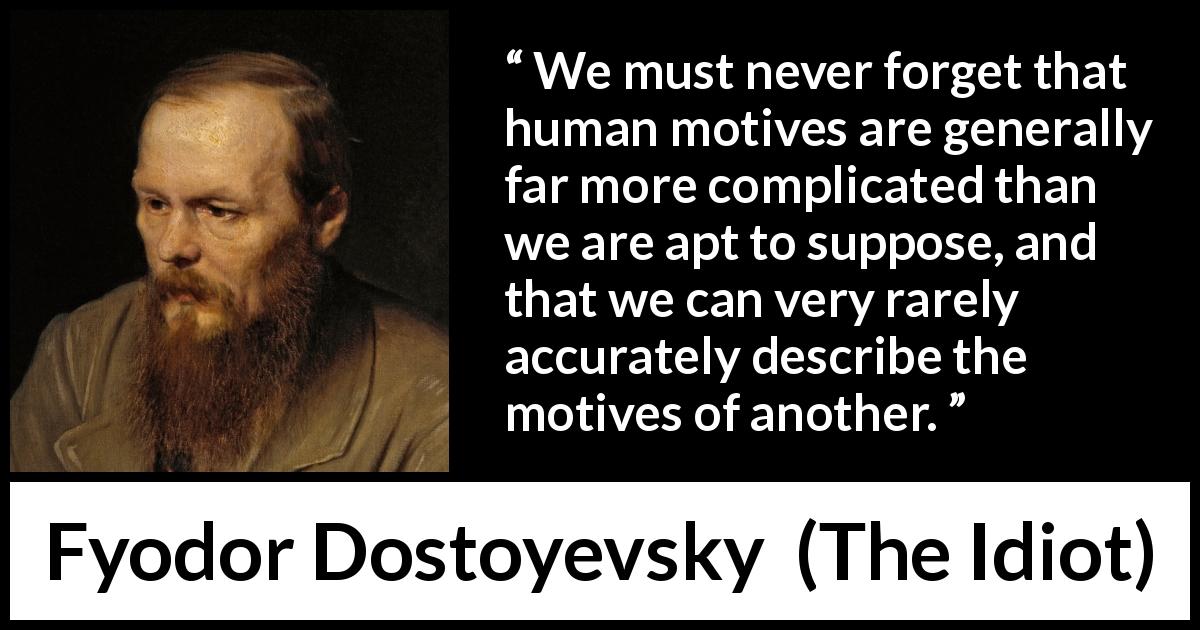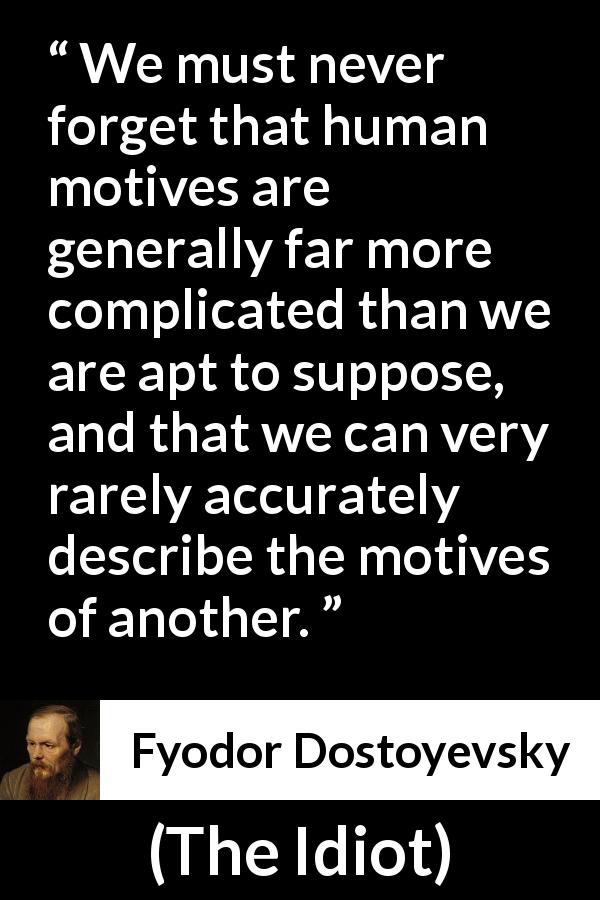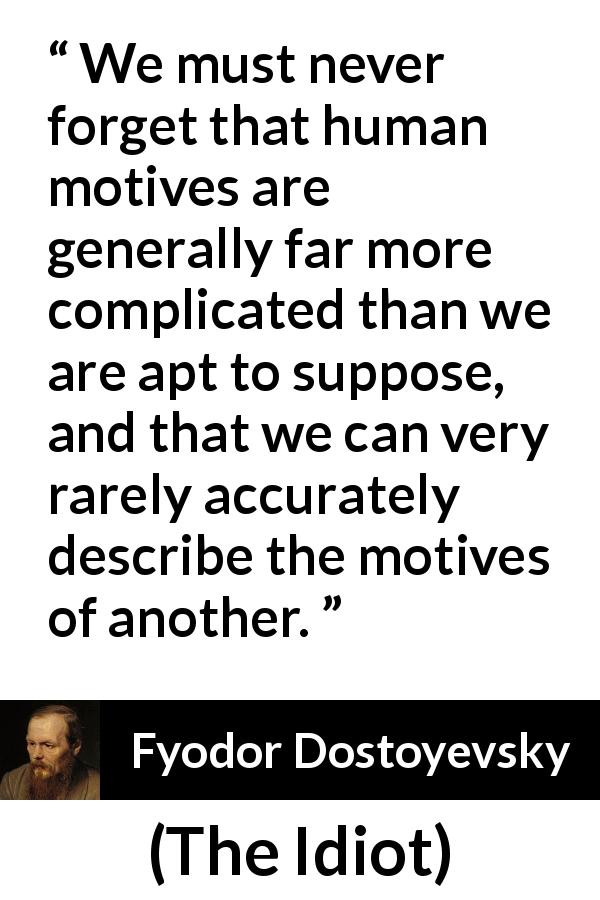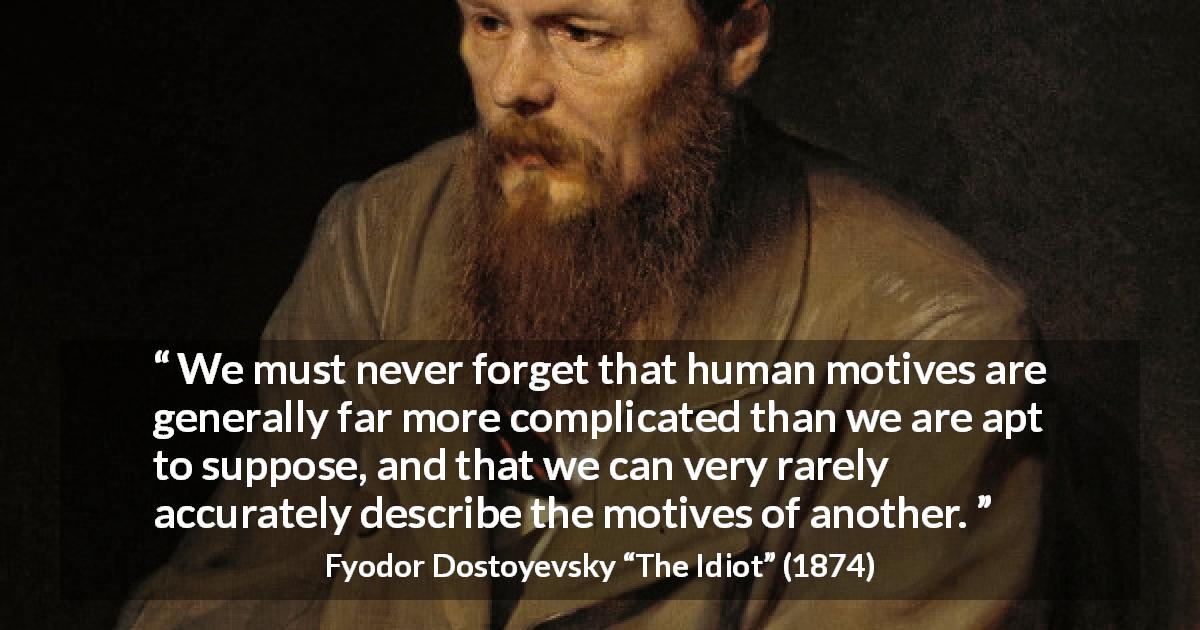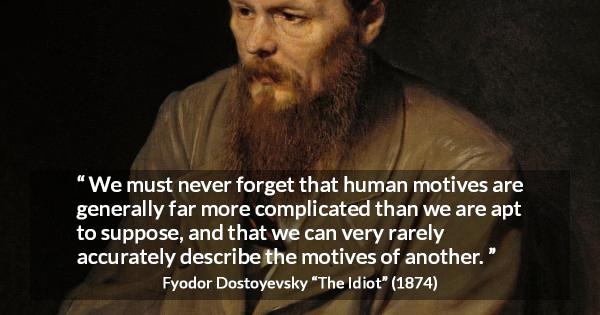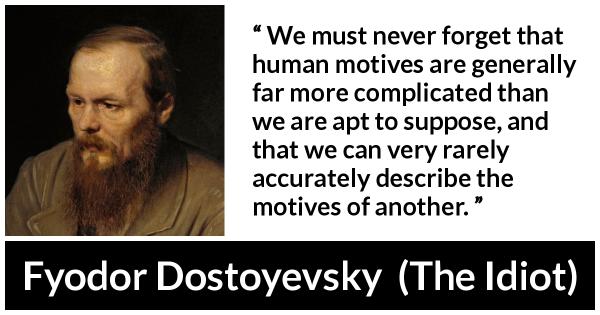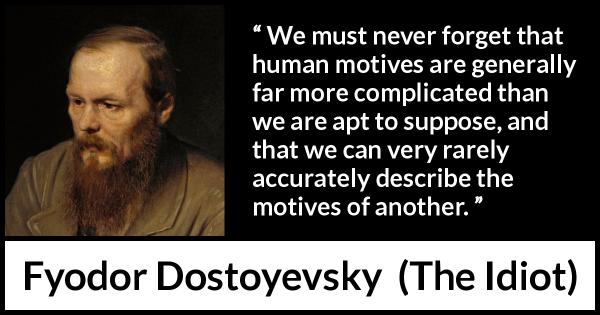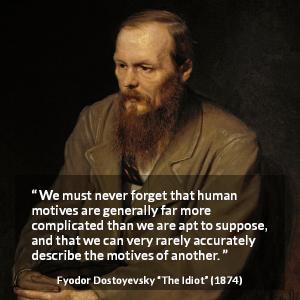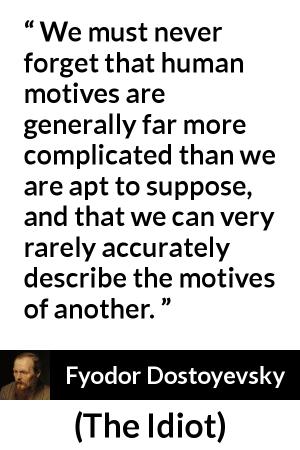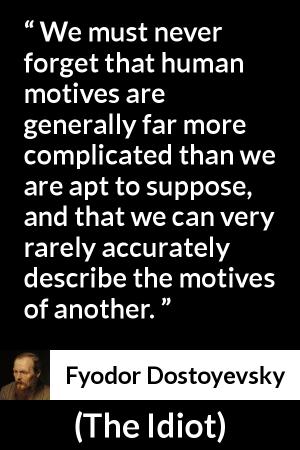“ We must never forget that human motives are generally far more complicated than we are apt to suppose, and that we can very rarely accurately describe the motives of another. ”
Fyodor Dostoyevsky, The Idiot (1874). copy citation
| Author | Fyodor Dostoyevsky |
|---|---|
| Source | The Idiot |
| Topic | complexity motive |
| Date | 1874 |
| Language | English |
| Reference | |
| Note | Translated by Eva Martin |
| Weblink | http://www.gutenberg.org/files/2638/2638-h/2638-h.htm |
Context
“The fact is that probably Hippolyte was not quite so black as Gania painted him; and it was hardly likely that he had informed Nina Alexandrovna of certain events, of which we know, for the mere pleasure of giving her pain. We must never forget that human motives are generally far more complicated than we are apt to suppose, and that we can very rarely accurately describe the motives of another. It is much better for the writer, as a rule, to content himself with the bare statement of events; and we shall take this line with regard to the catastrophe recorded above, and shall state the remaining events connected with the general's trouble shortly, because we feel that we have already given to this secondary character in our story more attention than we originally intended.”
source
